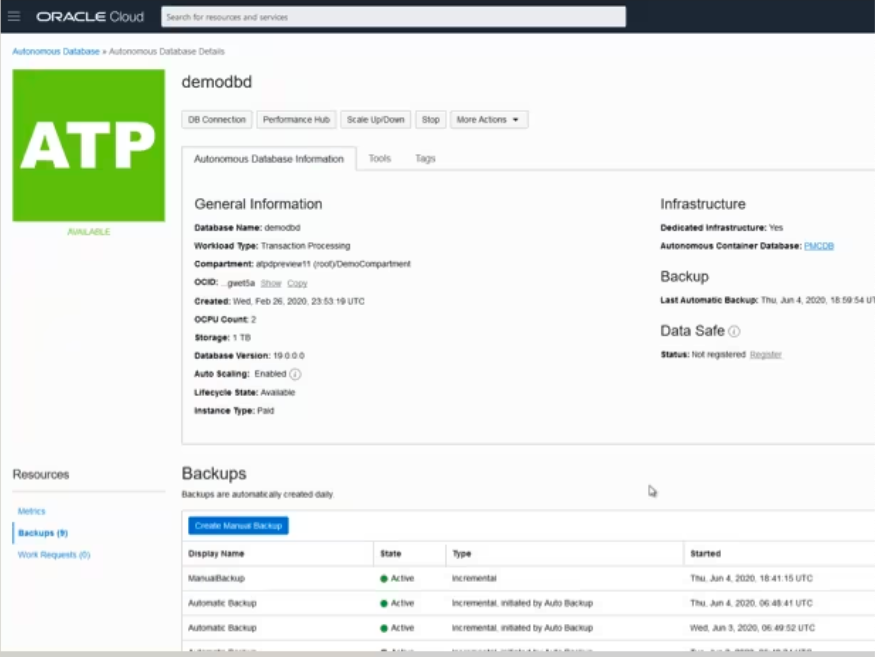Leading Database Providers for High-Performance Applications
Leading Database Providers for High-Performance Applications
Blog Article
Secret Features to Try To Find When Choosing a Data Source Service Provider
Picking a database supplier is a critical decision that can substantially influence your company's operations and information monitoring approach. Amongst the important attributes to take into consideration are scalability alternatives, which make certain that your system can adapt to growing needs.
Scalability Options
When picking a database copyright, comprehending scalability alternatives is important to making sure that the selected solution can suit future development. Scalability describes the capability of a data source system to expand its ability and efficiency in action to enhanced need. There are two main types of scalability: straight and upright.
Vertical scalability, or "scaling up," involves enhancing a single web server's sources, such as CPU, RAM, or storage space. This technique can be simple and cost-efficient for smaller applications but might get to a limitation where better upgrades are impractical or as well expensive.
Straight scalability, or "scaling out," includes adding more web servers to distribute the tons. This strategy permits better adaptability and can fit considerable boosts in data volume and individual website traffic (database provider). It is specifically helpful for cloud-based data source options that can dynamically allocate sources based upon demand
Safety Steps

When evaluating safety actions, consider the implementation of file encryption protocols (database provider). Data-at-rest and data-in-transit security are important to make certain that delicate details remains secured, even in case of a protection violation. In addition, search for providers that supply solid verification systems, such as multi-factor verification (MFA), to better improve accessibility control
Regular protection audits and conformity with industry requirements, such as GDPR or HIPAA, are a measure of a supplier's commitment to data defense. In addition, ask regarding their case response plan; a durable strategy can lessen the impact of any type of possible protection case.
Performance Metrics
Evaluating performance metrics is necessary for companies to make sure that their picked database copyright meets operational requirements. Key performance metrics include reaction scalability, time, and throughput, which collectively establish the efficiency of data source operations under varying loads.
Reaction time is essential, as it shows just how quickly the data source can refine queries and return outcomes. Organizations should try to find metrics that indicate typical response times throughout height and off-peak hours. Throughput, typically determined in transactions per second (TPS), offers understanding into the database's ability to deal with high quantities of requests without efficiency deterioration.
Scalability assesses the data source's capability to expand with the organization's demands. here A durable data source company must demonstrate straight and upright scaling capabilities, allowing for smooth changes as needs rise and fall. Additionally, recognizing latency, specifically in dispersed systems, can assist companies evaluate the responsiveness of the data source throughout various geographical places.
Client Support
Trustworthy customer assistance is a cornerstone of effective data source management, giving companies with the help needed to maximize and solve problems performance. When picking a database company, evaluating the level of client assistance they offer is vital. A durable support group ought to consist of several networks of communication, such as phone, email, and live conversation, helpful site guaranteeing that customers can access aid whenever they need it.
Additionally, receptive assistance teams that are offered 24/7 substantially improve the integrity of the database service. Prompt reaction times and efficient resolution of concerns can dramatically reduce downtime and increase general performance. It is additionally advantageous to think about the accessibility of committed assistance personnel, that can use customized support based on a company's details requirements.

Prices Structure
When thinking about a data source service provider, the rates structure is a pivotal variable that can substantially influence an organization's budget and total method. A versatile and clear rates design is crucial for straightening the database sets you back with business needs - database provider. Organizations must evaluate whether the pricing is based upon intake, per individual, or a flat this article price, as each design can generate different economic effects gradually
It is important to analyze any type of extra prices related to the provider's services, such as data storage space fees, deal costs, and assistance charges. Some companies might provide tiered pricing, enabling scalability as the organization expands, while others might impose strict limitations that could become costly as information requirements increase.
Moreover, organizations should consider the long-lasting worth of the data source solution. While reduced preliminary prices can be enticing, they might not account for future upgrades, maintenance fees, or combination costs. Carrying out a complete cost-benefit analysis will aid determine one of the most suitable pricing framework that balances scalability, performance, and assistance, eventually ensuring that the chosen data source provider straightens with the company's functional and economic objectives.
Conclusion
In final thought, selecting a data source company demands mindful factor to consider of various important attributes. Scalability alternatives make sure adaptability to future development, while robust protection actions secure sensitive details. Reviewing efficiency metrics makes it possible for the identification of efficient data sources, and easily accessible customer assistance enhances the total user experience. A clear pricing framework even more adds to notified decision-making. By thoroughly examining these elements, companies can make tactical choices that align with their functional needs and lasting purposes.
Choosing a data source service provider is an important decision that can considerably influence your organization's operations and data management strategy.When choosing a database copyright, comprehending scalability alternatives is essential to making sure that the chosen service can suit future development. When choosing a data source provider, evaluating the degree of customer assistance they supply is important.When taking into consideration a data source service provider, the pricing structure is a pivotal aspect that can substantially impact an organization's spending plan and overall strategy. Performing a detailed cost-benefit evaluation will certainly assist determine the most ideal rates structure that stabilizes scalability, assistance, and performance, ultimately ensuring that the chosen database service provider aligns with the organization's economic and operational purposes.
Report this page